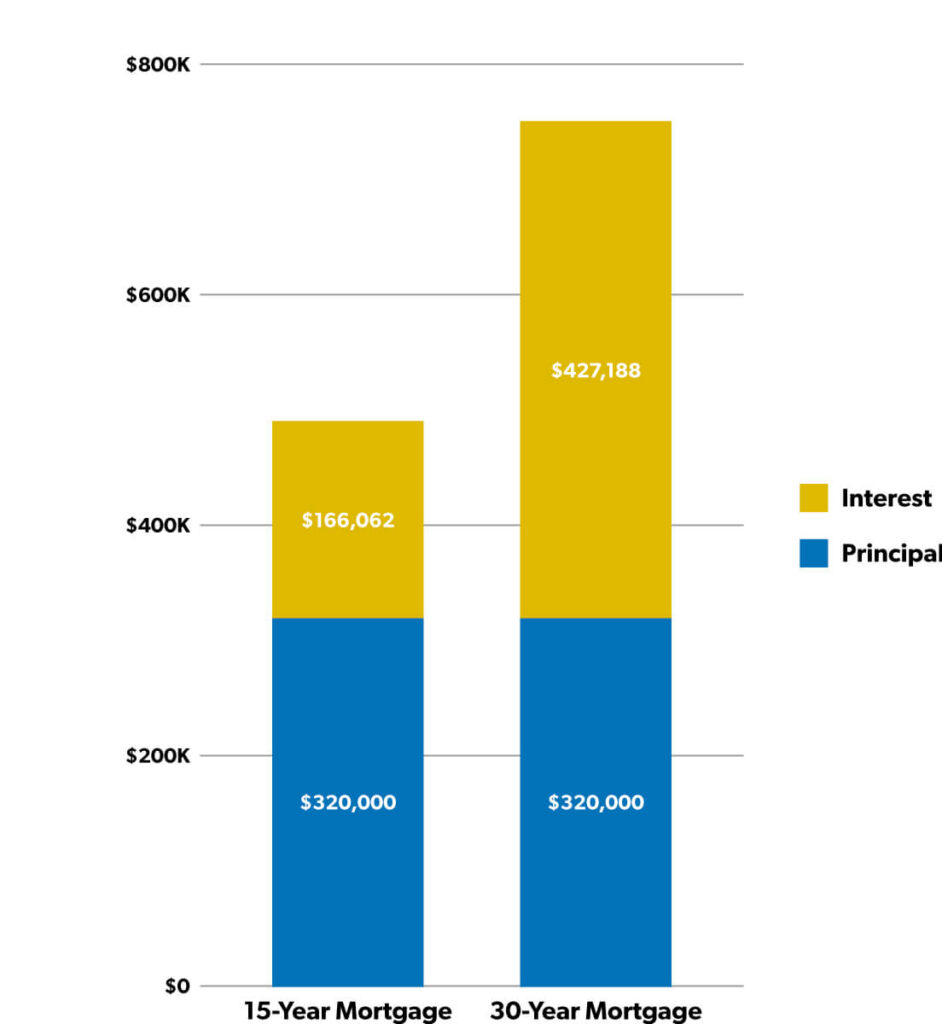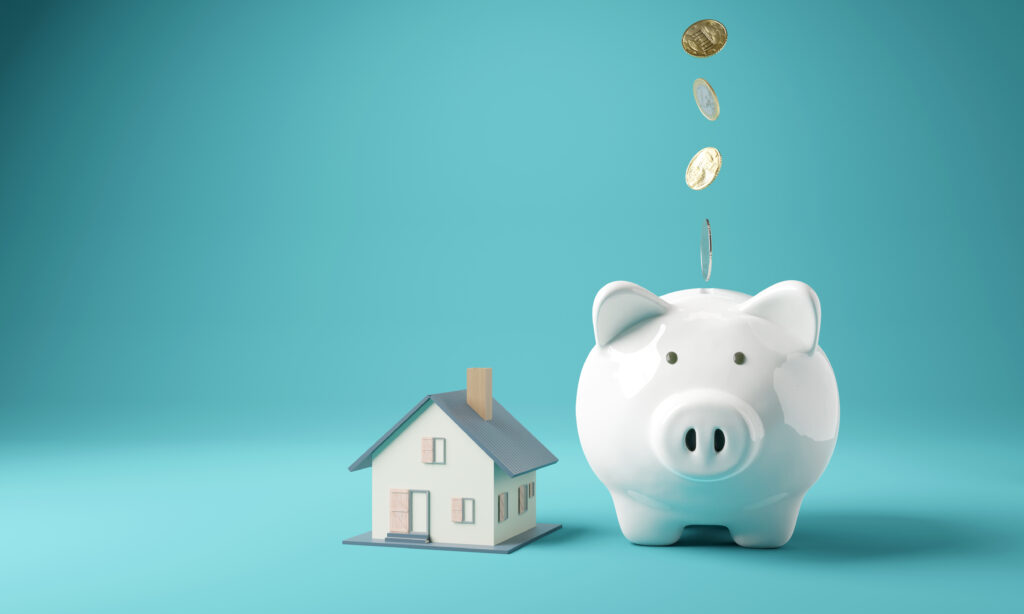As a first-time homebuyer, stepping into the world of mortgages can feel like learning a new language. One of the most important terms you’ll encounter is your mortgage interest rate—the percentage that determines how much extra you’ll pay on top of the loan amount. This rate can make a big difference in your monthly payments and the total cost of your home over time. So, what exactly influences your interest rate? In this guide, we’ll walk you through the key factors in a way that’s easy to understand, with tips tailored to help you, as a first-time buyer, secure the best mortgage rates for first-time buyers possible.
1. Your Credit Score: Your Financial Report Card
Think of your credit score as a report card that lenders use to gauge how reliable you are with money. It’s a number, usually between 300 and 850, that reflects your history of paying bills, managing credit cards, and handling loans. For first-time homebuyers, this score is a big deal because it often determines whether you’ll get a low interest rate or a higher one.
- Why it matters: A higher score (say, 740 or above) tells lenders you’re trustworthy, so they’re likely to offer you a lower rate. A lower score might suggest you’ve missed payments or maxed out credit cards, which could lead to a higher rate to offset the lender’s risk.
- What you can do: Before you start house hunting, check your credit score through free services like Credit Karma or your bank. If it’s not where you want it to be, don’t panic! Pay down credit card balances, avoid opening new accounts, and make sure all bills are paid on time. Even a small improvement can help. Also, review your credit report for errors—sometimes, mistakes can drag your score down unfairly.
2. The Type of Loan and How Long It Lasts
As a first-time buyer, you’ll face a few choices when picking a mortgage, and these decisions directly affect your interest rate. The two main options are fixed-rate and adjustable-rate mortgages (ARMs), and the length of the loan (called the term) matters too.
- Fixed vs. Adjustable Rates: A fixed-rate mortgage keeps the same interest rate for the entire loan, giving you predictable payments—perfect if you like stability. ARMs start with a lower rate, which can seem tempting, but that rate can rise (sometimes a lot) after a few years, which might catch you off guard. Fixed-rate loans often have slightly higher starting rates than ARMs, but they’re safer for budgeting over time.
- Loan Term: You’ll also choose how long you’ll take to pay back the loan—usually 15, or 30 years. Shorter terms, like 15 years, typically come with lower interest rates because lenders get their money back faster, reducing their risk. But shorter terms mean higher monthly payments, which might stretch your budget. A 30-year loan has lower monthly payments but often a slightly higher rate.
- What you can do: If you’re planning to stay in your home for a long time, a fixed-rate mortgage might give you peace of mind. If your budget is tight, a 30-year term could make payments more manageable. Talk to your lender about what fits your goals, and don’t be afraid to ask questions—there’s no such thing as a silly one when you’re new to this!

3. Your Down Payment: Showing You’re Invested
Saving for a down payment is one of the biggest hurdles for first-time homebuyers, but it’s also a chance to influence your interest rate. The more money you put down upfront, the less risky you seem to lenders.
- Why it matters: A bigger down payment—like 20% of the home’s price—lowers the amount you need to borrow, which reduces the lender’s risk. This is measured by something called the loan-to-value (LTV) ratio. A lower LTV (meaning a bigger down payment) can lead to a better interest rate. Plus, putting down 20% often lets you skip private mortgage insurance (PMI), saving you even more.
- What you can do: If 20% feels out of reach, don’t worry—many first-time buyer programs, like FHA or VA loans, let you put down as little as 3.5% or even 0%. These loans might come with slightly higher rates, but they make homeownership possible sooner. Start saving early, even if it’s just a little each month, and look into down payment assistance programs in your area. Every bit helps!
4. Your Debt-to-Income Ratio: Balancing Your Finances
Your debt-to-income (DTI) ratio is like a snapshot of how much of your income is already tied up in bills. Lenders use it to see if you can handle a mortgage payment on top of your other debts, like student loans, car payments, or credit cards.
- Why it matters: A lower DTI—ideally 36% or less—shows lenders you have room in your budget for a mortgage, which can help you get a lower rate. If your DTI is high (say, above 43%), lenders might worry you’ll struggle to keep up, so they may charge a higher rate to cover that risk.
- What you can do: Calculate your DTI by adding up your monthly debt payments (like loans and credit cards) and dividing by your monthly income. If it’s high, try paying off smaller debts, like a credit card balance, before applying for a mortgage. Avoid big purchases, like a new car, while you’re preparing to buy a home. If you’re earning a steady income, you might also ask for a raise or pick up a side gig to lower your DTI.
5. The Bigger Picture: Economic Factors
Some factors that influence mortgage rates for first-time buyers are beyond your control, like shifts in the economy. As a first-time buyer, understanding these factors can help you navigate the process, even if you can’t directly change them.
- The Federal Reserve: The Fed sets short-term interest rates, which can influence mortgage rates. When the Fed raises rates to cool down the economy, mortgage rates often climb too.
- Inflation: When prices for things like gas and groceries go up, lenders may raise rates to keep their profits steady.
- Market Trends: Mortgage rates also depend on how much investors want to buy mortgage-backed securities (fancy financial products tied to home loans). When demand is high, rates might drop; when it’s low, rates can rise.
- What you can do: You can’t control the economy, but you can keep an eye on rate trends. If rates are low, it might be a good time to lock in your rate (a process where your lender guarantees a rate for a set period). Focus on improving your personal finances, and don’t stress too much about things beyond your reach.
6. The Loan Amount and Your Dream Home
The size of your loan and the type of home you’re buying can nudge your interest rate up or down.
- Big Loans (Jumbo Loans): If you’re buying a pricey home that requires a loan above a certain limit (called the conforming loan limit, which changes yearly), you’ll need a jumbo loan. These often have higher rates because they’re riskier for lenders.
- Home Type: Rates can vary depending on whether you’re buying a single-family home, a condo, or even a home you plan to rent out. Lenders see primary residences as less risky, so they often offer lower rates for those.
- What you can do: As a first-time buyer, you’re likely looking at homes within the conforming loan limit, which can help you avoid jumbo loan rates. If you’re eyeing a condo or fixer-upper, ask your lender how it might affect your rate. Being flexible with your home choice could save you money.
7. The Lender You Choose
Not all lenders are the same, and the one you pick can make a difference in your interest rate. Banks, credit unions, and online lenders all compete for your business, and their rates and fees can vary.
- Why it matters: Some lenders specialize in working with first-time buyers and may offer lower rates or special programs. Others might charge higher rates but have more flexible requirements. It’s like shopping for a car—different dealers offer different deals.
- What you can do: Don’t settle for the first lender you find. Get quotes from at least three—maybe a local bank, a credit union, and an online lender. Compare not just the rate but also the fees (like origination costs). Ask about first-time buyer programs, which might come with lower rates or grants.
8. Paying Points to Save Money
Here’s a trick that might sound strange at first: you can pay extra upfront to get a lower interest rate. These are called discount points, and they’re like a trade-off.
- Why it matters: One point costs 1% of your loan amount and might lower your mortgage rates for first-time buyers by about 0.25%. For example, on a $200,000 loan, paying $2,000 could save you thousands in interest over time. But it only makes sense if you plan to stay in the home long enough to recoup the cost.
- What you can do: As a first-time buyer, cash might be tight, so weigh whether points are worth it. Ask your lender to run the numbers—how much will you save monthly, and how long will it take to break even? If you’re planning to move in a few years, skipping points might be smarter.
Your Next Steps!
Buying your first home is exciting, and getting a good interest rate can make it even better. Here’s how to start:
- Check your credit score today and take steps to improve it, even if it’s just paying off a small credit card balance.
- Save as much as you can for a down payment, and explore first-time buyer programs that let you put down less.
- Pay down debt to lower your DTI and show lenders you’re ready for a mortgage.
- Shop around for lenders—think of it like finding the best deal on a phone plan.
- Ask about rate locks if you find a low rate you love, so you’re protected if rates go up while you’re house hunting.
Final Thoughts
Your mortgage rates for first-time buyers might seem like just a number, but they’re a key piece of your homebuying puzzle. By understanding what affects them—like your credit score, loan type, and down payment—you can take control and make choices that save you money. As a first-time homebuyer, you’re already taking a big step toward building your future. With a little prep and some smart shopping, you can land a rate that makes your dream home even more affordable.
Ready to get started? Pull your credit score, explore loan options, or reach out to Joint Path Mortgage LLC who specializes in first-time buyers. Your custom home loan options are waiting for you!

